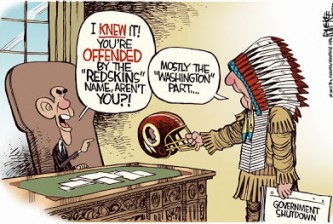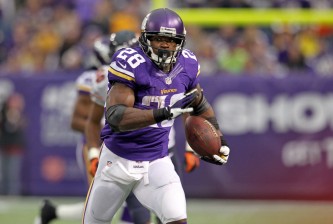 Shockwaves are resonating through the league from NFL commissioner Roger Goodell’s decision to suspend Sean Payton for a full season, and remove various other coaches, front office personnel and players (to be determined) from their jobs for extended periods of time.
Shockwaves are resonating through the league from NFL commissioner Roger Goodell’s decision to suspend Sean Payton for a full season, and remove various other coaches, front office personnel and players (to be determined) from their jobs for extended periods of time.
Saints fans (like our own Matt Yoder) are aghast. Former players now in the commentary business (like former Saint Mike Karney) say “what goes around comes around.” Fans are split between old-school leather-helmeters who say “What’s the big deal?” and new-generation fans eager to “protect the athlete, protect the game.” Our own Shane Clemons wrote a strong feature on that latter perspective yesterday.
But the bottom line is: Gregg Williams’ bounty program worked. The 2009 Saints mauled Kurt Warner, Brett Favre and Peyton Manning to clear the path for Drew Brees and the offense to win a series of shootouts and take home the game’s ultimate prize.
Vince Lombardi, the godfather of the modern game and the man whose name is emblazoned on the championship trophy, famously said “Winning isn’t everything, it’s the only thing.” By that philosophy, the only punishment Roger Goodell could possibly have unleashed that would have robbed the Saints of the rewards of their bounty program would be to take that championship away.
That was apparently a step too far for Goodell, who didn’t want to repeat the ugly mistake of the controversial 1925 season.
In the league’s earliest days, the league’s founding president Joseph Carr (who led the NFL from 1921 until his death in 1939) relied on a basic policy to determine the league champs – let the team with the best record take the trophy. But back then, teams didn’t play fixed schedules, and sorting out final records might come down to the same kitchen table politics that you and I might use as “commissioners” of our fantasy football league.
In 1925, a band of rough-knuckled coal miners from central Pennsylvania banded together as the Pottsville Maroons and summarily laid waste to Red Grange’s Chicago Bears, Knute Rockne’s golden domers at Notre Dame (in a controversial exhibition), and everyone else in between. They were in line for the league championship, until Carr decided to strip them of the title based on a technicality surrounding that exhibition game.
Pottsville has protested this decision ever since, all the more vehemently when the Bidwill family took over the Chicago Cardinals in 1933 and started to claim that 1925 title as their own. (If you have ever wondered why the Cardinals seem to be cursed, look no further.)
While the league has never overturned the Cardinals’ claim, Carr realized the ridiculous mess that this policy caused, and instituted a playoff game that year to determine its champions on the field of play, not in a smoke-filled room. That championship-game concept immediately separated the pro game from college, which had traditionally featured higher-quality play and greater national renown. By the time that championship game became the Super Bowl, pro football had begun overtaking all other sports as America’s Game.
The simple fact is, no NFL commissioner has ever overturned a championship that has been decided — by whatever means — on the field of play. Not for Bill Belichick and his blatant video-cheat scheme. Not for Sean Payton and his pay-to-waylay bounty program. Nothing short of an all-out gambling scandal would prompt Goodell or anyone else in his seat to take the nuclear option.
So while we can talk about Goodell’s “no tolerance” message to the league, we’re avoiding the most obvious truth of the situation. The Saints did whatever it took to win the Lombardi Trophy. And no one can – or is willing to – take that away from them.
Saints fans may be crying now, but the difference between them and the championship-starved Cardinals and Vikings, who fell victim to Williams’ bounty-hunters in 2009, is that the Saints have shiny new championship rings to dry those tears.






















